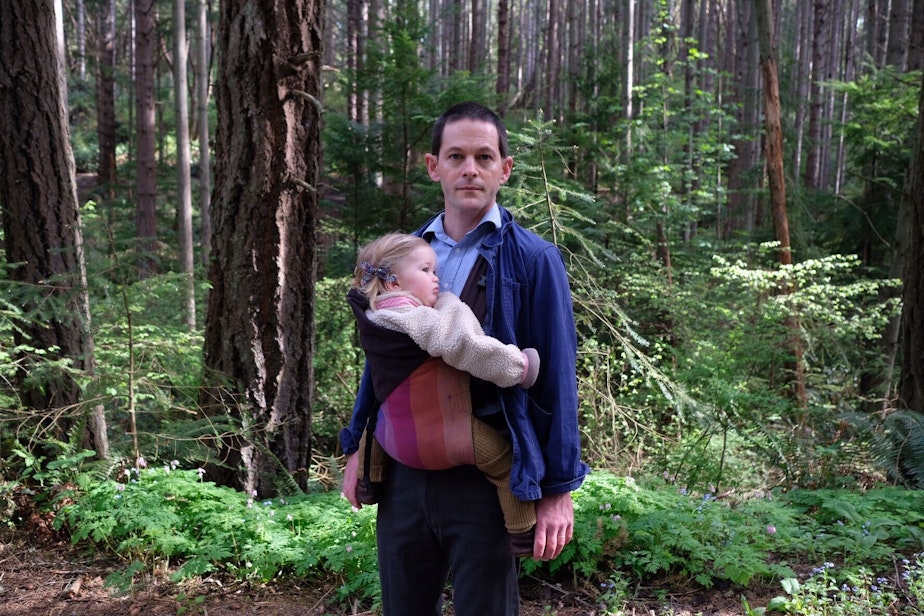This Tacoma doctor marks his days in PPE and poetry

Voices of the Pandemic features people in the Seattle area who are on the frontlines of the coronavirus outbreak.
You can read some of Dr. Okrent's work here and here. He will also be featured in this forthcoming anthology.
My name is John Okrent. I'm a family doctor at SeaMar Community Health Center in Tacoma, Washington. It's generally what is often referred to as an underserved population.
Many of my patients don't have insurance, or have only minimal insurance; many of them are undocumented. Many of them have housing insecurity or are homeless.
I'm pretty shy and retiring by nature. And I think if I had decided to just try to be a poet, I could have easily become a hermit and retreated into a cabin somewhere, and I didn't want that. I wanted to do something that helped people, and that kind of forced me to interact with the world.
I think I became a doctor because I wanted connection. More than anything, I wanted to connect with other people in meaningful ways and to be with people in their hard times – to bear witness to it, and to hopefully help them through it.
I have a 16-month-old daughter and before this, before COVID, I would get home from work and run and hug my daughter and roll around on the floor with her and… it was the best part of my day.
And now, since this started, every day I leave my wife and daughter and go to the clinic, and am being exposed to who knows what, you know? (Specifically, being exposed to COVID.) And so when I come home, I'll call my wife on my way home and let her know I'll be home in 10 minutes or whatever, and she’ll bring her to a different part of our cabin.
And then I’ll just kind of make a beeline straight into the shower, undress, throw all my clothes straight into the laundry, and hopefully she doesn't see me first. Because if she sees me first then she comes running to me, and I have to keep distance from her which just feels terrible. Feels like it goes against every instinct in my body to not just pick her up and hug her. But… I don't know what's on my shirt. I don't know what's on my belt buckle. So I don't.
I decided to start writing these sonnets after work one day, just realizing that I should be documenting this. That I wanted to have something to share with my daughter in the future that would convey to her what this time was like that we went through together.
So I wanted to describe to her what I was seeing out the window. I wanted to tell her about the incredible pink moon that everybody saw.
I wanted to describe the people coming together at sundown to bang pots and pans and sing out of their windows, and I wanted to obviously tell her too about the refrigerator trucks being set up as temporary morgues outside the hospitals.
But also about the the cherry trees that were just, you know, surrounding those refrigerator trucks and have seemed to me more beautiful this spring then I can ever remember. I wanted to turn my attention to the world, as clearly and deeply as possible.
